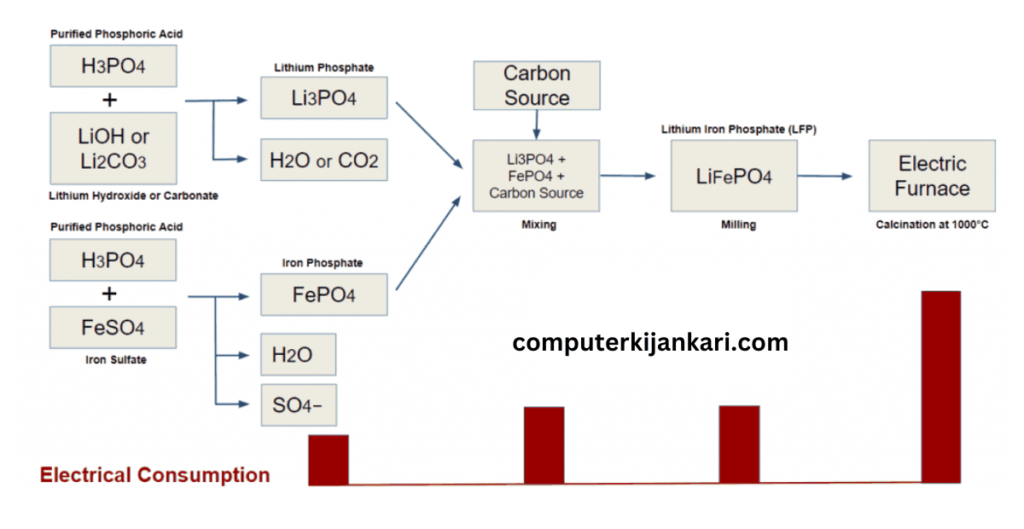LFP Battery Breakthrough: The Game-Changer for Electric Vehicles You Need to Know!2024

The automotive landscape is undergoing a monumental shift with the advent of the LFP Battery Breakthrough. In this comprehensive guide, we delve into the intricacies of this game-changing technology that promises to redefine the electric vehicle (EV) industry.
Introduction
The world of electric vehicles is evolving at an unprecedented pace, and at the forefront of this transformation is the revolutionary LFP Battery Breakthrough. As the demand for sustainable transportation grows, manufacturers are racing to adopt this groundbreaking technology. Let’s explore why LFP is becoming the undisputed game-changer for electric vehicles.
Understanding LFP Battery Technology
LFP, or Lithium Iron Phosphate, represents a significant leap forward in battery technology. Unlike traditional lithium-ion batteries, LFP offers enhanced safety, longer lifespan, and increased energy density. This breakthrough addresses critical concerns in the EV sector, making electric vehicles more accessible and reliable than ever before.
Advantages of LFP Batteries
Energy Efficiency Beyond Measure
LFP batteries boast exceptional energy efficiency, providing electric vehicles with an extended range on a single charge. This efficiency not only enhances the overall driving experience but also contributes significantly to environmental sustainability.
- Safety: They are inherently more stable and less prone to thermal runaway, making them much safer than other lithium-ion batteries. This is because the LiFePO4 compound has a strong phosphate structure that is not easily broken down.LFP battery structure
- Longer lifespan: LFP batteries can typically last for 2,000 to 5,000 charge cycles, which is 2-5 times longer than other lithium-ion batteries. This makes them a more cost-effective option in the long run.
- Faster charging: LFP batteries can be charged quickly without causing damage to the battery. This is due to their stable chemical composition.
- Wider operating temperature range: LFP batteries can operate in a wider range of temperatures than other lithium-ion batteries, from -20°C to 60°C. This makes them suitable for use in a variety of climates.
Safety Takes Center Stage
One of the standout features of LFP technology is its inherent safety. The chemistry of Lithium Iron Phosphate minimizes the risk of thermal runaway, a concern with other lithium-ion batteries. This makes LFP batteries a safer and more reliable choice for electric vehicles.
However, LFP batteries also have some drawbacks:
- Lower energy density: LFP batteries have a lower energy density than other lithium-ion batteries, meaning they can store less energy per unit weight or volume. This can make them less suitable for applications where weight or space is a major constraint, such as in electric vehicles.
- Higher cost: LFP batteries are typically more expensive than other lithium-ion batteries.
Overall, LFP batteries are a good choice for applications where safety, lifespan, and fast charging are important, even if they have a lower energy density and higher cost. They are becoming increasingly popular in a variety of applications, including electric vehicles, energy storage systems, and portable electronics.
Here are some additional things to keep in mind about LFP batteries:
- They are typically used in cylindrical cells, which are more robust than pouch cells.
- They are often used in battery packs with a built-in battery management system (BMS) to protect the battery from overcharging, over-discharging, and overheating.
- They are a relatively new technology, and their performance is still improving.
I hope this helps! Let me know if you have any other questions.
Applications Across Electric Vehicles
LFP in Electric Cars

The application of LFP batteries in electric cars is reshaping the automotive industry. With longer battery life and improved safety, electric cars equipped with LFP technology are becoming the preferred choice for eco-conscious consumers.
LFP in Electric Buses
Public transportation is undergoing a green revolution, thanks to LFP batteries. Electric buses powered by LFP technology not only reduce emissions but also lower operational costs, making them an economically viable and environmentally friendly option for urban mobility.
Addressing Common Concerns
Are LFP Batteries the Future?
Absolutely. The LFP Battery Breakthrough is positioning itself as the future of electric vehicles. Its numerous advantages, coupled with ongoing advancements in technology, make LFP the driving force behind the next phase of sustainable transportation.
Will LFP Batteries Replace Traditional Lithium-ion?
While LFP is gaining prominence, the complete replacement of traditional lithium-ion batteries may take time. Both technologies will likely coexist, with LFP dominating certain segments due to its unique benefits.
Is LFP Technology Expensive?
Initially, LFP batteries may incur higher manufacturing costs, but the long-term benefits, including reduced maintenance and longer lifespan, make them a cost-effective choice over the vehicle’s lifetime.
Can LFP Batteries be Recycled?
Yes, LFP batteries are recyclable. The eco-friendly nature of this technology aligns with the growing emphasis on sustainability in the automotive industry.
Are LFP-Powered Vehicles Widely Available?
Major automotive manufacturers are increasingly adopting LFP technology. As demand grows, expect a surge in the availability of LFP-powered vehicles across various market segments.
How Does LFP Contribute to Green Initiatives?
LFP batteries contribute significantly to green initiatives by reducing carbon emissions and reliance on fossil fuels. The widespread adoption of LFP-powered vehicles is a key step toward achieving a more sustainable and eco-friendly future.
Conclusion
The LFP Battery Breakthrough is not just a technological advancement; it’s a paradigm shift in the electric vehicle landscape. As we witness the convergence of innovation and sustainability, LFP stands tall as the game-changer that will drive the future of electric mobility.
Remember, the future is electric, and LFP is at its core—transforming the way we drive and paving the way for a cleaner, greener tomorrow.



